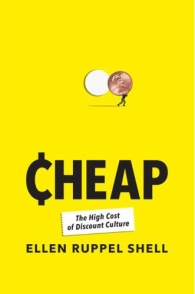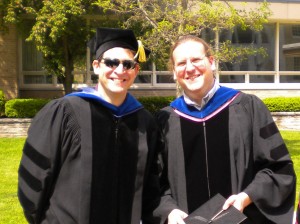Who is teaching all of these additional courses?, you ask. Well, here we go: The Economics Department is pleased to welcome two visiting professors, M. Taylor Rhodes and Satis Devkota, for the 2013-14 academic year.
Professor M. Taylor Rhodes hails from Charlotte, North Carolina, where he completed his doctorate in economics at UNC Greensboro in the Spring of 2013. Other stops along the way include the University of Virginia and Penn State. At Lawrence, he is teaching introductory macroeconomics (Fall and Spring), advanced topics in Sports Economics (Winter), and labor economics (Fall). He has an active research agenda in applied microeconomics, including local economic policies, topics in sports economics, and the introduction of new beer brands in the US beer industry. He has four years of teaching experience, both in the classroom and online. In his spare time (?) he is something of a computer jock — listing his hobbies as desktop Linux, open source software and network and cloud computing. His aspirations for the year include the creation of his own cloud.
Professor Satis Devkota, completed his doctorate at Wayne State University in 2012, focusing on Health Economics and Comparative Health System. This year he will be teaching development economics (Fall and Spring), two sections of econometrics (Winter), and international trade (Spring). He also has an active research agenda in applied microeconomics focusing on health economics (sustainable policy, comparative effectiveness and health care disparity), education economics (socio-economic determinants of disparity in education and access to schooling), development economics (farmer’s productivity, inequality and poverty) and international trade (exchange rate and trade). He has more than 12 years of teaching experience at the collegiate level, including a stint teaching MBAs this past year as a visiting professor at the University of South Dakota.
And, of course, the indefatigable Professor Gary Vaughan will be back this year with an expanded role for the innovation & entrepreneurship program. Once again he will be teaching sections of financial accounting (ECON 170) in the Fall and Spring, as well as playing a role in the entrepreneurship courses (ECON 180 and ECON 211). In addition, he will be offering a follow-up to his financial accounting course, Topics in Finance (ECON 295) in the Winter term. Professor Vaughn is the founder and runs Guident Business Solutions in Appleton, and sits on the board of several organizations, including Board of Advisor member to College of Buisness and Legal Studies at Concordia University and the Self Employment in the Arts (SEA) Organization.
Welcome to Professors Rhodes and Devkota and welcome back to Professor Vaughn. We hope to have a welcome Econ Tea in the next week or two.

 On the plus side, the global economic situation is far different that it was back then. Indeed, back then we had
On the plus side, the global economic situation is far different that it was back then. Indeed, back then we had 

 Let me ask you a question — is that enough to knock that program off of your trusted sources list? They ostensibly write about economic issues, yet neither the founder/writer nor any editor/producer was able to catch such a colossal blunder. If they are that confused about the easy stuff, how much do you trust them to explain credit default swaps or the toxic assets program? (And, as regular readers know,
Let me ask you a question — is that enough to knock that program off of your trusted sources list? They ostensibly write about economic issues, yet neither the founder/writer nor any editor/producer was able to catch such a colossal blunder. If they are that confused about the easy stuff, how much do you trust them to explain credit default swaps or the toxic assets program? (And, as regular readers know,  “The safer they make the cars, the more risks the driver is willing to take. It’s called the Peltzman effect.” — Some CSI Episode
“The safer they make the cars, the more risks the driver is willing to take. It’s called the Peltzman effect.” — Some CSI Episode
